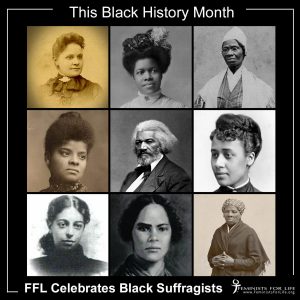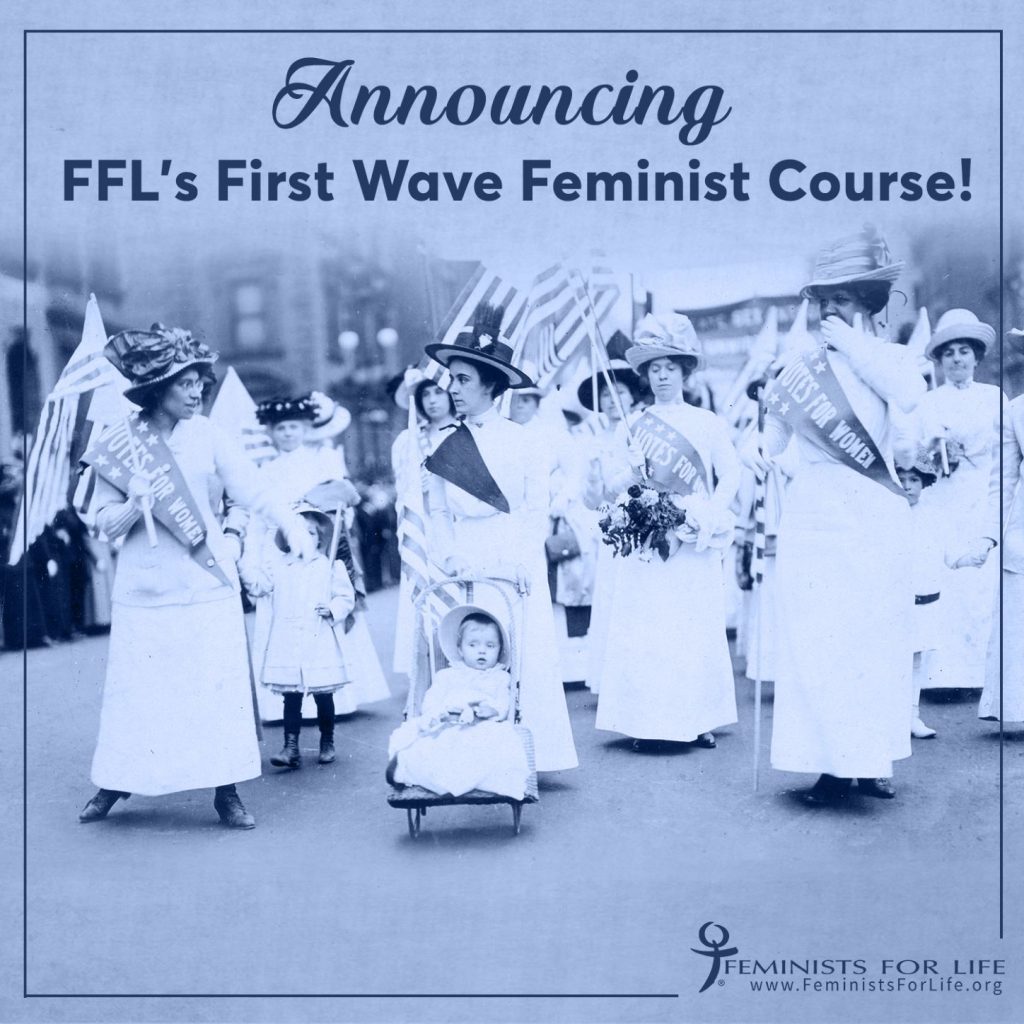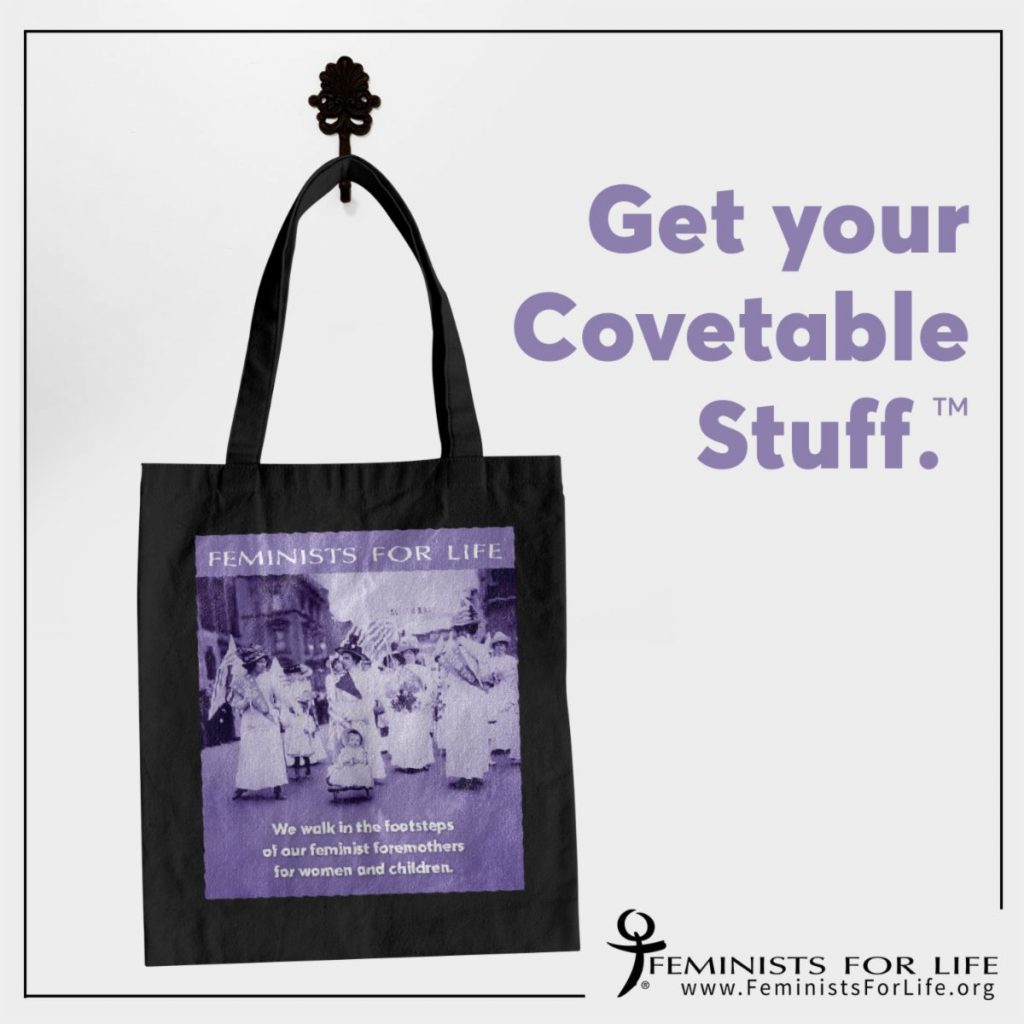
“At the dawn of the suffrage movement, no known African-American women attended the famous Seneca Falls Convention, despite the abolitionist sentiments that gave birth to the campaign for women’s rights.
“White women, who were still powerless in many ways, needed to influence men to attain the vote. Susan B. Anthony had signed a declaration for universal suffrage, but when her dear friend Frederick Douglass — who shared the vision for women’s suffrage — determined men should go first, she felt utterly betrayed. Others like Elizabeth Cady Stanton felt women superior to men because of women’s life giving capacity. ‘It was sex v. race, and black women were caught in a double bind. Today, we have women’s groups who support abortion as if our own children were the enemy. Who is hurt most? Women and children of color,’ said FFL President Serrin Foster. ‘One day people will look back at this generation and grimace when considering this form of discrimination and violence. We wished they had all refused to choose.'”
FFL was proud to celebrate the often overlooked contributions of Black American suffragists in “Remembering Black Suffragists,” from our Spring/Summer 2020 issue of The American Feminist, “Pedaling Toward Freedom.” As we kick off Black History Month, we renew our focus on the women and men who came before us, with the hope that no human being will ever again be left behind, regardless of her or his race, sex, age, size, or location. You can read the rest of this article here.
(From the meme: First row: Fannie Barrier Williams, Nannie Helen Burroughs, Sojourner Truth; Second row: Ida B. Wells-Barnett, Frederick Douglass, Dr. Anna Julia Cooper; Third row: Angelina Weld Grimké, Mary Ann Shadd Cary, Harriet Tubman)
Even after the 19th Amendment was ratified, true equality was out of reach for many Americans. Voter disenfranchisement, legally enforced segregation, and many other structurally racist policies persisted for decades afterward. These civil wrongs were only further compounded by the 1973 Roe and Doe decisions legalizing abortion-on-demand nationwide.
Even still today, one of the greatest racial disparities is in the percentage of women of color who receive abortions, relative to their share of the populations, as well as other quality-of-life issues, such as higher maternal and infant mortality rates, especially for Black American women. International abortion advocates export this oppression by trying to force developing nations to accept abortion as part of their Western, neocolonialist agenda.
You can learn more about this in our exclusive interview, “Target Africa,” with Nigerian pro-life activist Obianuju “Uju” Ekeocha, from our Fall/Winter 2018 issue of The American Feminist, “Abortion: Nothing to Celebrate.” You can read it here.
Finally, in case you missed it, we ask you to look at American policies through the eyes of women and men in Africa. In a strong open message to President Joe Biden, Africans from across the continent unite to strongly stand up for their babies and against abortion. Uju explains the impact of the United States’ ever-changing policies for and against exporting abortion to nations of people across the continent, who cherish their children. She also goes into the history of how racism has played a part of the destruction of Africans’ children.
Abortion advocates constantly seek to impose Western support for abortion on Africa, like they do in America on women of color. There is nothing more racist than abortion. Just look at the stats in America: Sixty-one percent are performed on women of color. The Africans interviewed here ask that, rather than abortion, the emphasis should be education, micro-business loans that would help to alleviate poverty, electricity, improved infrastructure, good government, clean water, food, etc. “Please help us. Don’t kill us,” says Stella Maris. Another woman says that by funding abortion, Americans become “accessories to murder.”
This attitude that Americans and Europeans know more than Africans about their love for their own babies is, by definition, racist, and forcing pro-lifers like you and me to fund it is simply immoral. We should not export our own failed policies and practices and impose abortion on people who cherish their children.
In an appeal to the American government not to fund abortion in Africa, one woman named Marion Lisa explains: “The African community is built on the following principles: the sanctity of life, equal dignity for all, protecting the weak and the vulnerable.”
Uju concluded her message to President Biden: “Anytime that Africans are asked, the answer is always unanimous: We do not want abortion. The question now is this: Will President Joe Biden listen to us? Will he recognize the voice of the African people? Will he respect the cries of the heart of the ordinary African person? Or will he just be the neocolonial master like many other Western leaders? Will he be the one to come in to force his own ideas and ideologies in the world of the poor? I hope not. Please, President Joe Biden, listen to the voice of the Africans.”
This Black History Month, as every month, march forth!!

Because women deserve better,
Serrin M. Foster
President
Feminists for Life of America
Editor-in-Chief
Women Deserve Better
& The American Feminist
P.S. If you would like me or any of our other pro-woman, pro-life FFL Speakers to present at your next event, please contact us at info@feministsforlife.org. Stay well!








